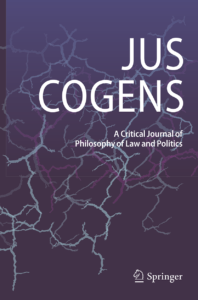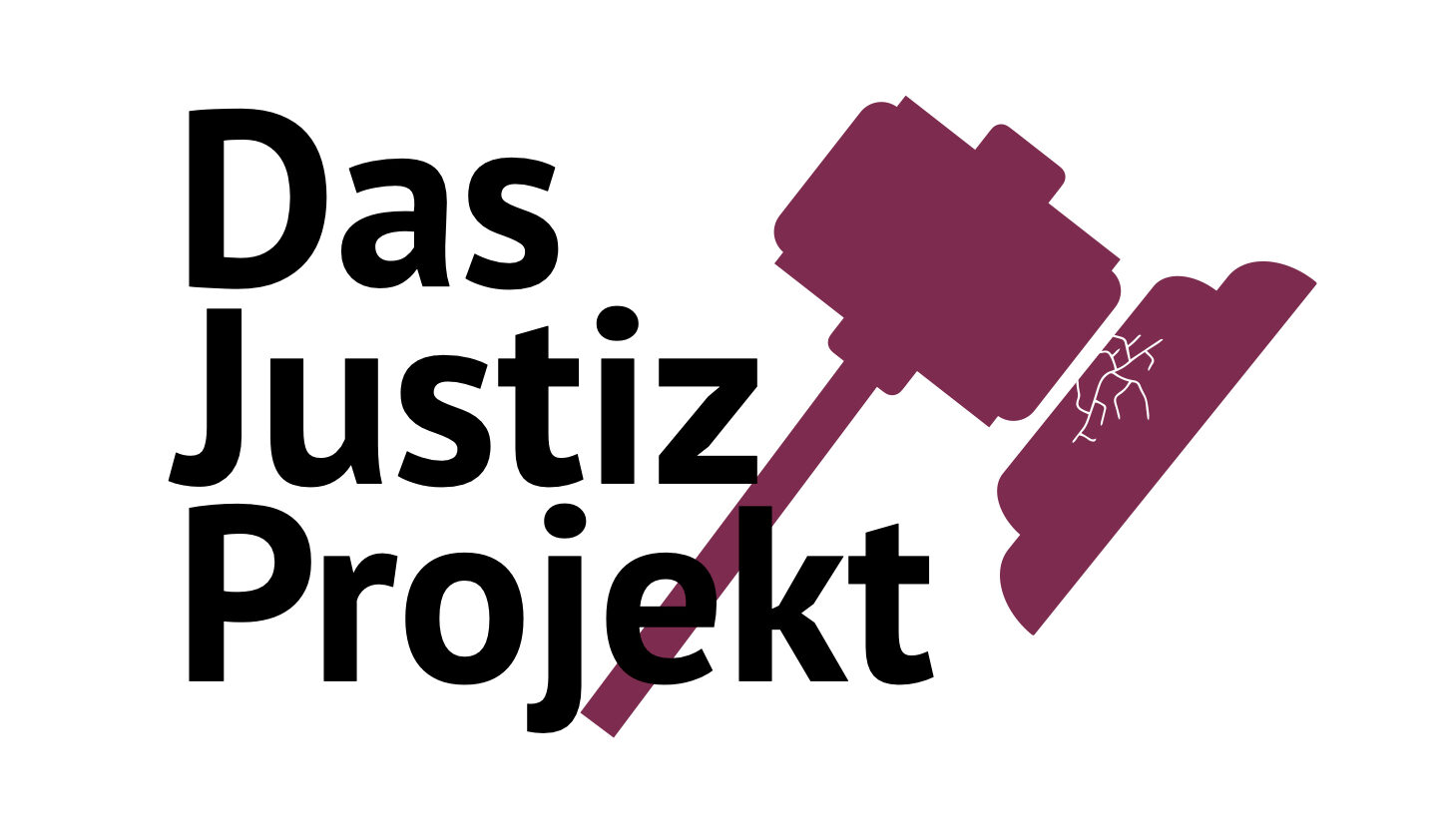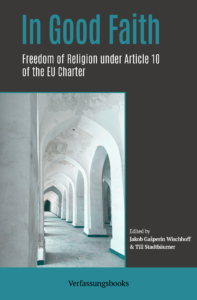Free Speech, Protest and the High Court’s Ruling on the Proscription of Palestine Action
On 13 February, the High Court of England and Wales ruled that the UK government’s decision to proscribe Palestine Action did not follow the government’s own policy and was contrary to the rights to freedom of expression and assembly. The case highlights how proscription, a sweeping power “designed to ensure that an organisation ceases to exist”, significantly affects the rights of people outside the organisation. Given the breadth of the restriction, the court came to the right conclusion and provided an important safeguard for free speech and protest rights.
Continue reading >>International Law of Equals
The old, cherished post-war international legal order no longer exists. The stakes were clear even before the recent, blatantly illegal attack on Iran led by the United States and Israel. After attacking Venezuela in January, Donald Trump freely admitted that he was only interested in his own morality, not international law. Mark Carney and Emmanuel Macron articulated the antithesis to Trump in Davos. Both professed their commitment to a multilateral, rules-based order, placing predictability above high-handedness. Each vision has a history that can provide insight into the conditions for their success.
Continue reading >>On the Way to the Industrial Accelerator Act
After months of delays, internal frictions, leaks, and sensational claims that EU industrial policy is going “full China”, the long-anticipated proposal for an Industrial Accelerator Act (IAA) is expected in early March. The IAA represents a continuation and deepening of the Commission’s new industrial policy, distancing itself from a deeply entrenched constitutional imaginary in which the economy was governed primarily through rules designed to enable and protect competitive coordination.
Continue reading >>Is the International Norm Against Assassination Dead?
On 28 February 2026, the United States and Israel assassinated the supreme leader of Iran, Ali Khamenei. The joint operation marked the first time either state has directly killed a sitting head of state. As with the US’s January 2026 operation against Nicolás Maduro, what stands out is not only the gravity of the act but the manner in which it was justified. While the international norm against assassination may not yet be fully dead, its recent trajectory offers little hope for its restoration.
Continue reading >>The Pseudo-Technical Purge
In January 2026, Serbia adopted a package of amendments to core judicial statutes, informally labelled the “Mrdić laws”, that together recalibrate key elements of the country’s prosecutorial and judicial framework. At the centre of the reform lies the restructuring of the Public Prosecutor’s Office for Organised Crime. The “Mrdić laws” illustrate a contemporary mode of rule-of-law erosion in which formal guarantees of independence remain textually intact, even as the functional capacity of key institutions is deliberately weakened.
Continue reading >>Just One More Video…
On 6 February 2026, the European Commission disclosed its long-awaited preliminary findings regarding its investigation into whether TikTok, the social media platform used by 170 million people across the European Union, is in breach of the Digital Services Act. The announcement occurs at a time when political and public concerns about the potential harmful impact of social media platforms are at an all-time high, leading to calls to “ban” children and teenagers from those spaces in countries across the world. As “addictive” features are central to concerns leading to these contested calls, the potential of the Digital Services Act to change platform design is crucial.
Continue reading >>Schnell ist nicht zu schnell
Am vergangenen Donnerstag verhandelte der Zweite Senat des BVerfG die Frage, ob Gesetzgebungsverfahren zu schnell sein können. Oder in den Worten von Vizepräsidentin Ann-Katrin Kaufhold: Braucht es ein „Tempolimit“ für Gesetzgebungsverfahren im Bundestag? Nachdem der Zweite Senat vor drei Jahren große Schritte in diese Richtung gemacht hat, haderte er nun sichtlich mit der eigenen Rechtsprechung. Die heute zuständigen Richter*innen stehen dabei vor der Herausforderung, einen Umgang mit den 2023 ohne Not eingeschlagenen, weder überzeugenden noch praktikablen Maßstäben zu finden.
Continue reading >>Warum der erneute Angriff der USA und Israels auf den Iran offenkundig völkerrechtswidrig ist
Nach wochenlangen Drohungen haben die Vereinigten Staaten und Israel den Iran angegriffen. Noch ist offen, ob die Militärschläge den Auftakt zu einem längeren Konflikt markieren. Schon jetzt ist aber klar: Die Angriffe der USA und Israels sind offenkundig rechtswidrig. Sie verletzen das Gewaltverbot aus Art. 2 Abs. 4 der UN-Charta in einer Weise, wie sie kaum eindeutiger sein könnte.
Continue reading >>Missverständnisse zur Mietpreisbremse
Mit Beschluss vom 8. Januar 2026 hat das BVerfG die Verlängerung der Mietpreisbremse für verfassungsgemäß erklärt. Damit bestätigt es eine Entscheidung aus 2019, in der es bereits die – zunächst zeitlich befristete – Einführung der Mietpreisbremse gebilligt hatte. Auf den ersten Blick scheint die bloße Bestätigung der früheren Entscheidung kaum der Rede wert. Wie so oft teilt Karlsruhe die relevanten Nachrichten aber nicht im Tenor, sondern zwischen den Zeilen mit. Bei genauerem Hinsehen räumt das Gericht nämlich mit einer Reihe von Missverständnissen auf, für die seine frühere Entscheidung Anlass gegeben haben mag.
Continue reading >>“Muskism Proposes Something More Like Social War”
Elon Musk’s influence extends far beyond business – and it continues to grow. But to understand how powerful and how potentially dangerous for democracy Musk’s empire truly is, one has to examine the worldview that made his rise possible. In their new book, the historian Quinn Slobodian and the writer Ben Tarnoff trace the ascent of the self-styled “Technoking” and the idea of fusing human beings with machines. We spoke with them about Musk’s relationship with the state, “cyborg conservatism,” and whether anything can still counter the fusion of political and digital power.
Continue reading >>CURRENT DEBATES
Reflexive Globalisation and the Law
In October 2025, a new Centre for Advanced Studies was established at the Humboldt University of Berlin’s Law Faculty. Named “Reflexive Globalisation and the Law: Colonial Legacies and their Implications in the 21st Century” (RefLex), the Centre explores the premise that the globalisation of law and legal discourse has entered a reflexive phase: one in which law and knowledge production about law are less and less one-directional exports from or within the Global North but rather dynamic, multidirectional exchanges that confront colonial legacies, epistemic hierarchies, and enduring asymmetries of power. This blog symposium, co-edited by Philipp Dann, Florian Jeßberger, and Kalika Mehta, aims to present and extend these interactions to a broader, accessible dialogue with a wider community beyond the university setting. Featuring contributions from a range of different disciplines and regions, the symposium serves as a public prelude to its official launch, which can be watched live here.
Read all articles >>Wem gehört die Wissenschaft?
Wem gehört die Wissenschaft – und wem sollte sie gehören? Obwohl Wissen als öffentliches Gut prinzipiell unbegrenzt teilbar ist, wird der Zugang zu wissenschaftlichen Publikationen und Infrastrukturen durch ökonomische und rechtliche Strukturen beschränkt. Zwischen kommerziellen Verlagsmodellen, staatlicher Finanzierung und Community-getragenen Open-Access-Initiativen stellen sich grundlegende Fragen nach Eigentum, Verantwortung und Unabhängigkeit wissenschaftlicher Arbeit. Das Blog-Symposium „Wem gehört die Wissenschaft?“ greift diese Frage auf und beleuchtet Facetten der Organisation von Wissenschaft als Gemeingut, der Eigentums- und Machtverhältnisse im Publikationssystem und der Bedingungen offener und freier Wissensproduktion.
Read all articles >>ADVERTISEMENT
 Volume 7,
Volume 7,Issue 2
July 2025
JUS COGENS
-
Killing Hitler Word by Word: The Oath as Apocalyptic Lawmaking
GREGOR NOLL
-
Adjudicating Climate Protest as a Tool of Modern Republicanism
DMITRII KUZNETSOV
OUR LATEST PUBLICATION
Jakob Gašperin Wischhoff, Till Stadtbäumer (eds.)
In Good Faith: Freedom of Religion under Article 10 of the EU Charter
Freedom of religion, its interaction with the prohibition of discrimination, and the self-determination of churches are embedded in a complex national and European constitutional framework and remain as pertinent and contested as ever. This edited volume examines the latest significant developments from an EU perspective, placing freedom of religion at the centre of analysis and critically assessing its operationalisation and interpretation in light of the EU Charter.
Discover the Open Access digital edition here.
PROJECTS
VB Security and Crime
In cooperation with:
VB Security and Crime is a cooperation of the Max Planck Institute for the Study of Crime, Security and Law (MPI-CSL) and the Verfassungsblog in the areas of public security law and criminal law. The MPI-CSL Institute is a member of the Max Planck Law network.
Das Justiz-Projekt

Weltweit gerät die unabhängige und unparteiische Justiz unter den Druck des autoritären Populismus.
Wie verwundbar ist die rechtsprechende Gewalt in Deutschland – im Bund und in den Ländern?
VB Security and Crime
In cooperation with:
VB Security and Crime is a cooperation of the Max Planck Institute for the Study of Crime, Security and Law (MPI-CSL) and the Verfassungsblog in the areas of public security law and criminal law. The MPI-CSL Institute is a member of the Max Planck Law network.
EDITORIAL
“Muskism Proposes Something More Like Social War”
Elon Musk’s influence extends far beyond business – and it continues to grow. But to understand how powerful and how potentially dangerous for democracy Musk’s empire truly is, one has to examine the worldview that made his rise possible. In their new book, the historian Quinn Slobodian and the writer Ben Tarnoff trace the ascent of the self-styled “Technoking” and the idea of fusing human beings with machines. We spoke
Continue reading >>„Muskismus setzt eher auf sozialen Krieg“
Elon Musks Macht reicht weit über die Wirtschaft hinaus. Und sie nimmt zu. Um zu verstehen, wie gefährlich Musks Imperium für die Demokratie tatsächlich ist, muss man das dahinterstehende Weltverständnis in den Blick nehmen. In ihrem neuen Buch zeichnen der Historiker Quinn Slobodian und der Autor Ben Tarnoff den Aufstieg des selbsternannten „Technoking“ nach und analysieren seine Idee einer Verschmelzung von Mensch und Maschine. Wir haben mit ihnen über Musks
Continue reading >>



